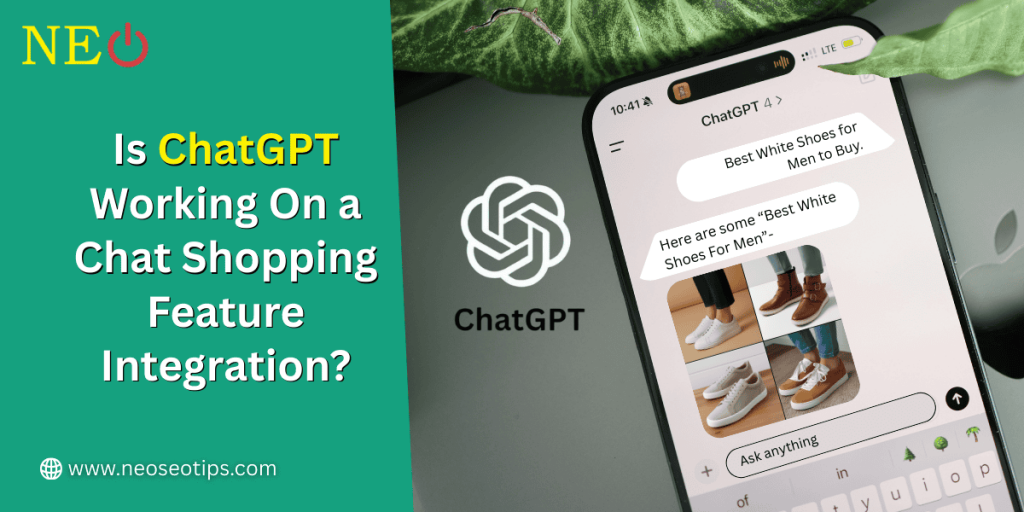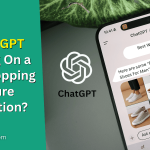Innovation is nothing new to ChatGPT, OpenAI's ground-breaking AI chatbot. It's transforming our interactions with technology, from producing code to responding to intricate queries. Rumors of a new feature have sparked curiosity and excitement, however, native shopping integration. After previous leaks revealed vulnerabilities, recent findings in ChatGPT's codebase also raised serious security concerns. Let's examine what this implies for consumers, companies, and the direction of AI-powered online shopping.
Will ChatGPT's shopping integration change the Game?
In April 2025, Developers discovered code strings in ChatGPT's public web bundle that hinted at chat shopping features. Words like "price," "buy now," "shipping," and "Shopify checkout url" imply that OpenAI may be preparing to allow users to make purchases straight from the chatbot. Imagine getting product recommendations, asking ChatGPT for a new pair of sneakers, and checking out, all while keeping the conversation going. This could simplify and improve the conversational and intuitive nature of online shopping.
The reference to Shopify's checkout system suggests a possible collaboration, even though it is not confirmed. This kind of action is in line with the growth of conversational commerce, in which AI chatbots assist customers with their purchases. Businesses can generate additional income through direct sales or affiliate marketing. We are left to guess when—or if—these features will launch, though, as OpenAI and Shopify have not yet responded.
How would in-chat shopping function?
Imagine asking ChatGPT to locate a laptop that fits your budget. It offers a "buy now" button connected to a Shopify checkout, curates options, evaluates costs, and shows ratings. This smooth experience, which combines product discovery and instant purchasing, has the potential to revolutionize e-commerce AI. To compete with traditional shopping platforms, ChatGPT may also use its natural language skills to make product recommendations based on your preferences.
Businesses can access a vast user base by integrating with ChatGPT. Sales may be boosted by sponsored product placements or affiliate links, and brands may learn from user interactions. However, trust is essential to this AI shopping assistant's success, particularly in light of ChatGPT's troubled data security record.
Codebase Leaks: an ongoing issue-
High-profile leaks have drawn attention to ChatGPT's codebase. Samsung prohibited its staff from using ChatGPT in 2023 after engineers unintentionally disclosed confidential source code while looking for debugging assistance. If users didn't opt out, the code they entered into ChatGPT ran the risk of being saved on OpenAI's servers and used for training. The risks of sharing private information with AI tools were made clear by this incident.
In the same year, 1.2% of ChatGPT Plus users' billing information was compromised due to a Redis py library vulnerability. By taking advantage of input patterns, researchers were also able to fool ChatGPT into disclosing training data, exposing weaknesses in its security. Vulnerabilities still exist, especially in mobile apps, even though OpenAI introduced a business version with restricted data sharing and an incognito mode to disable chat history.
What does this mean for users and businesses?
Although it may save users time, shopping within ChatGPT presents privacy issues. Given previous security breaches, OpenAI must prioritize providing unwavering security when handling financial data. Companies that use ChatGPT for marketing or customer support must exercise caution and make sure the chatbot doesn't receive confidential information. The stakes are high because even one leak could reveal trade secrets or harm a brand's reputation.
However, the potential benefits are substantial. With its integration of e-commerce, entertainment, and information, ChatGPT has the potential to become a one-stop shop for customers. Retailers could increase sales and visibility by collaborating with OpenAI, as long as security protocols stay up to date with new developments.
AI's future in E-Commerce-
ChatGPT is not the only company interested in e-commerce. Amazon's Rufus and Google's Bard are two rivals investigating AI-powered shopping. Chatbots may take over online retail as conversational AI develops because they provide individualized experiences that are difficult for traditional websites to match. However, security is still crucial. In the absence of strong protections, user confidence may decline, delaying adoption.
What OpenAI does next will be important. They could establish ChatGPT as a market leader in conversational AI if shopping features are released. In an increasingly competitive environment, fixing codebase vulnerabilities will be equally important to preserving credibility.
In conclusion,
Though its codebase problems serve as a warning, ChatGPT's possible shopping integration offers an intriguing look into the future of AI-driven commerce. Users should keep an eye on OpenAI's updates, refrain from sharing sensitive information, and use incognito mode for private conversations. In order to ensure safe usage practices, businesses must balance the advantages of AI tools against the risks.
Our strategy for using ChatGPT must change as it does. Keep checking back for updates on its shopping features.









